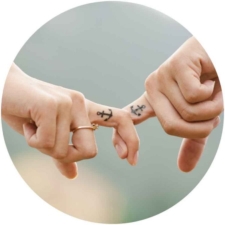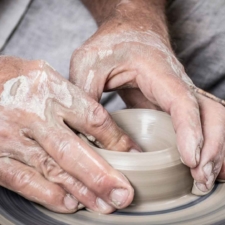“I can hardly feel you!”
…when love between parents and children fails.
A good attachment between us parents and our children is the foundation they need to develop properly, to enter life full of confidence and to unfold a healthy and stable personality. It is the ground on which our children build their lives.
It is a bond of the heart: we feel a vital and pulsing love from the first time we look at our baby and later as our child grows up. However, this bond of the heart is sometimes interrupted, so love is no longer perceptible, or it is overshadowed by other unnerving feelings.
External circumstances can be of great importance here. Maybe the newborn was taken from his or her mother shortly after birth and both had to be separated for a long time due to illness or medical reasons. This could have prevented the baby from turning towards the mother. It could also be that something terrible happened during the pregnancy, like the loss of a beloved uncle, or that giving birth was a difficult experience. All this can hamper the bond between a mother and her baby. Perhaps the mother is unable to build a bond with her child. Or maybe one of the three is bonded to another system and cannot relate freely to the other two. There can be many different reasons why the bond of the heart is blocked.



